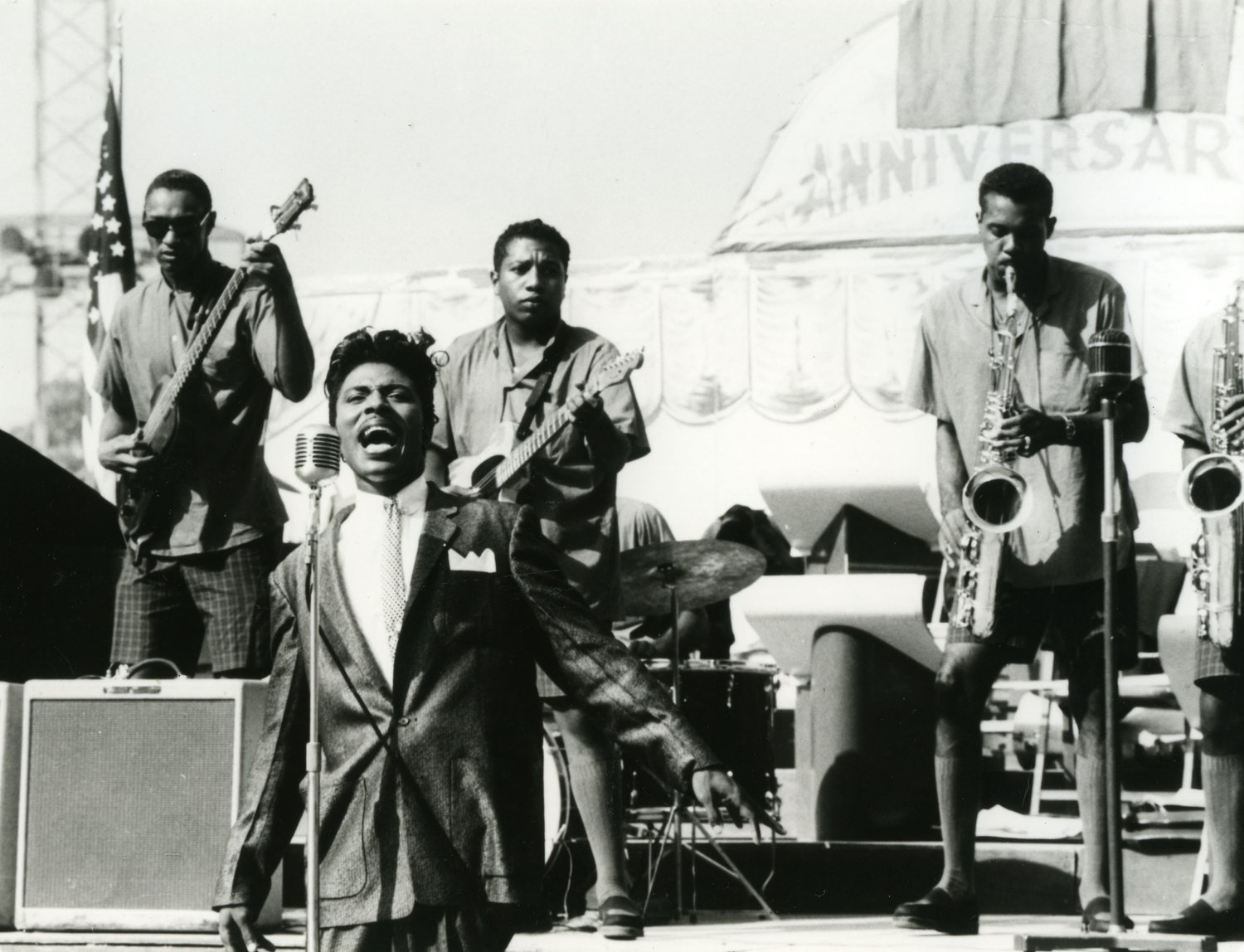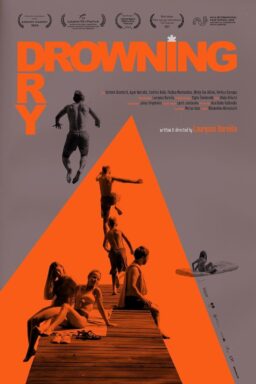The year is young, and festival season is just beginning, but one film seems to have separated itself from the pack as an early frontrunner for this year’s Best Documentary Feature Oscar. One of the breakout critical hits of this year’s Sundance Film Festival, “Little Richard: I Am Everything,” premieres on CNN this Monday night—a perfect ending to your Labor Day weekend—and will be available to stream on Max later this fall.
The “informative and emotional” portrait of one of rock and roll’s greatest originators was directed by Lisa Cortés, a multi-hyphenate who has worked in film, TV, and the music industry. Cortés is no stranger to the documentary world; she produced 2019’s “The Apollo,” about the venerable Harlem music venue, and she also co-directed (with Liz Garbus) 2020’s acclaimed documentary about the contemporary struggle for voting rights, “All In: The Fight for Democracy.” But “Little Richard: I Am Everything” is the first feature Cortés has directed solo, and we got the chance to talk to her about how she approached diving into the Little Richard archive and what inspired her about Richard’s story.
Was Little Richard’s death in 2020 the impetus for this film, or was the project already in motion before he died?
His death sparked an interest in my wanting to learn more and realizing that his story had not been told. For a long time, the space that he occupied in my imagination was more of a comic figure, telling people to shut up or being a colorful guest on talk shows. I knew the music, but his death really drove me to go, ‘Why are all these major rock and roll artists talking about how important he was to them?’ As a filmmaker I’ve always been driven by curiosity, and curiosity overcame my imagination with this story.

You’ve directed your own films, and you’ve also produced films for other directors. Was it always your plan to direct this one yourself?
I never thought about anyone else. Telling Richard’s story has a beautiful intersection with mine. I closely identify with the issues of being invisible, and I think Richard was railing against the machine, to be seen.
I have a deep background in the music industry as my first career, starting at Def Jam in the Golden Age of hip hop, and going on to Polygram Records. I love music and have a perspective on what the machine does to an artist.
Richard’s story checked so many boxes for me, and I realized the story was not only about honoring him, but also the people who preceded him and poured into him, like Sister Rosetta Tharpe.
The film is less interested in informing the audience on the minutiae of facts and chronology than it is in informing them more broadly about influence and importance. Was that a strategy that you had from the beginning, or did you find it in the process?
I knew that I didn’t want to spoon out the timeline to my audience. The goal was three things. Give Richard his flowers in a way that was influenced by his spirit of creativity and breaking boundaries. To shake up the template of music biodocs. And to be immersive, emotional, and visceral on many different levels.
Our editors and graphic designers did beautiful work showing the interiority of what it meant to be a teen in the ‘50s and experience Richard. The world is exploding, and it’s sex for the first time, and all of these feelings and textures. He introduced this range of emotions that were so radical and difficult to have playing out in a public space. Sometimes, I felt like the music did the talking for the story.
And it was important for me to center Richard’s voice in the storytelling. The celebrities and pundits all had to have an intimate connection to Richard, and to serve as a sounding board for some of the outlandish things he would say. It’s important to not let some untruths go without being checked, because we have to be careful with what we’re presenting as facts, and Richard was not always truthful.

When you got the green light for this movie, and suddenly you have access to the Little Richard archive, with every recorded interview and piece of footage he’s ever appeared in, what does Day One on this project look like for you?
Day One was to ascertain that we could find Richard’s voice to narrate his story and give him that agency. The film begins with Richard saying, “When I was a little boy,” and the last word in the film was recorded from Richard shortly before he passed away. We wanted to center his perspective. And he’s a fantastic storyteller, so you wouldn’t want to stray too far from his recollection of what had occurred.
In terms of finding his voice, does that mean you started digging into the archive by looking at interview footage first? Or how did you start sorting through it all?
We had two editors, Nyneve Laura Minnear and Jake Hostetter, who separated everything by performance or interviews. And a key part was bringing our music supervisor in early because all of the music isn’t under one license. As I knew from Richard’s history, he was making all kinds of deals. So we wanted to make certain at the inception of this project that we had access to those key seminal hits, and then also to find out what any potential issues were with outlying music that he had recorded outside of Sony and Concord.
And you needed access to the cover versions of Richard’s hits by artists like Elvis and Pat Boone. You needed to show the blandness of Pat Boone’s cover of “Tutti Frutti” next to the power of the original.
[laughs] As hard as he tries to swing it, I think he’s still waiting for the spirit to catch up with him.
Did you think about including parts of Little Richard’s ‘70s comeback period, or was the film always going to be about the way the ‘50s music carried forward through influence?
There were several tangents that were of interest, but with our incredible broadcast partner, we had a time limit. So it was always an internal question of what are the beats that are the most powerful, that move the themes along. Because with the idea of a Black queer man coming on the scene and wanting so much for himself, it was important for the audience to understand that he came into a system that did not want to benefit him financially or to really help further his career on the same level as his White peers.
I think his inability to have that complete access was ultimately quite devastating for his spirit. Yes, he said, ‘Oh I’m happy, they’re covering it.’ But you can see by the way he calls everyone out at Otis Redding’s induction into the Rock and Roll Hall of Fame he’s harboring really sensitive feelings about all that he has aided and abetted for others and not received recognition for himself.

What were your biggest editing challenges?
When I pitched this film, I always wanted to show two things. One is the connection to these moments in Richard’s life, that I think are seminal, where portals of possibility open up. And then two is that the artists are part of the continuation. As we see in the ending montage, his influence continues. It wasn’t just contained to one period. Because so many people don’t know much about Richard, they don’t see the vocal and performative elements that he introduced and that were his hallmarks, that have now been carried on by successive generations of artists.
I was really blown away by that final montage of contemporary musicians on stage, rocking outfits and moves and flamboyance that can so clearly be traced back to Little Richard. Did you know early on that the movie would end like that, and that was the narrative arc you were trying to create?
I would say halfway through, working on different chunks, thinking about the end, and realizing that even though we had spent so much time with Richard, this is a film where the present is in conversation with the past. Richard is not finite. His music and his presence loom large. And some of that presence has not been contextualized. It has not been introduced into conversations to say, ‘In 1955, look at this man. No one else is doing this.’ And we go to the present where it’s normalized, with no sense of the connective tissue of his acts of resistance and how they’ve been made accessible for artists now.
“Little Richard: I Am Everything” is on CNN on Monday, September 4th.











